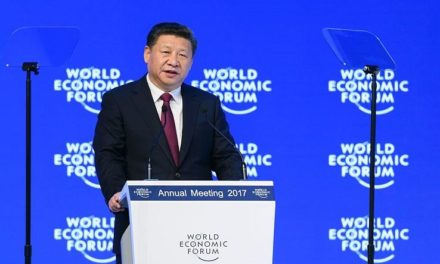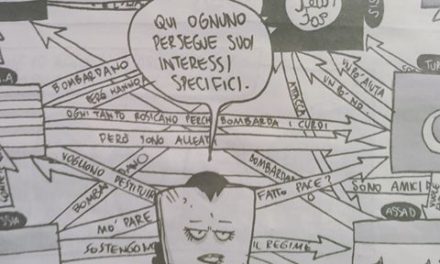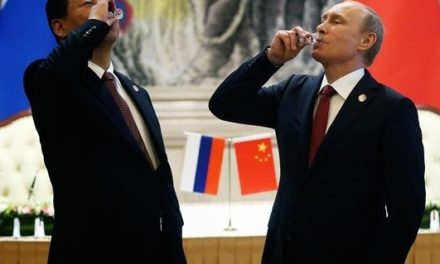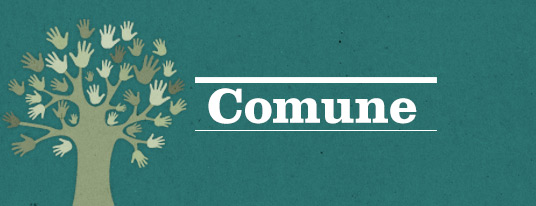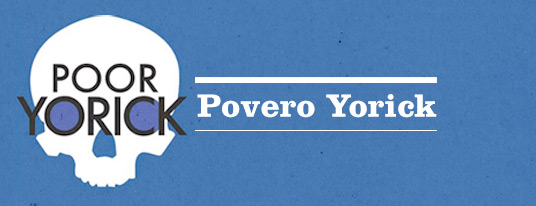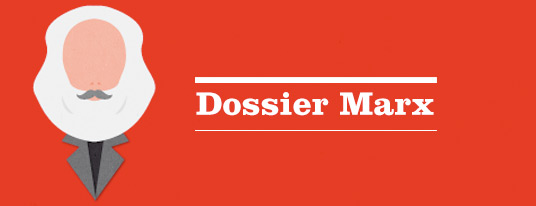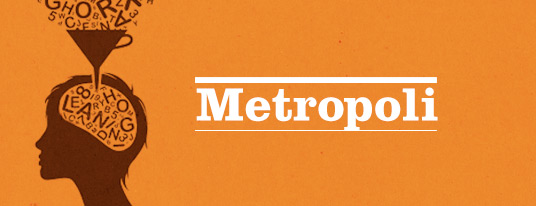TIZIANA TERRANOVA interviews TREBOR SCHOLZ
TT: Trebor, in Italy as elsewhere I imagine, we are discussing what is happening to traditional forms of labor organisation such as the traditional trade unions and new forms of experimentation which we can describe as part of a ‘social trade unionism’ and their relationship to the larger and less defined place of struggles affecting the distinction between life and labor, environmental and territorial struggles, informal struggles in the cities around precarity etc. You, on the other hand, have been following closely the transformations affecting US trade unionism, but also the global impact of the reorganization of labor induced by the use of the Internet as infrastructure. You noticed a resurgence of trade unionism in workplaces where traditionally has been very difficult to organize, such as the fast food industry or large department stores such as Walmart. But what you seem to be really concerned with, however, is the challenge of organizing what you call digital labor, and in particular crowdsourcing which you have renamed crowdmilking. Here ‘anonymous workers’ meet ‘anonymous employers’. Can you tell us a bit about this new mode of organization of production and the challenge it poses to unionisation?
TS: Hi, Tiziana. Thank you for the invitation to talk with you about the future of traditional unions and emerging forms of solidarity and mutual aid. Let us go for a short walk through the fields of labor and so that we don’t get lost, let’s lay out our terms first. Let me be clear that my focus will be mostly on the United States, and that my focus is mainly what I label “digital labor,” and within this vast labyrinth of different practices, I will discuss the poorest and most exploited workers in the crowdsourcing industry.
I’m hanging on to the term labor in this context, despite the fact that it is problematic and quite difficult to even draw a dotted line around. I’m holding onto the language of labor, partially because I do not want to loose the connection to people like the young labor feminist Karen Silkwood who lost her life in the process of delivering secrets about health and safety violations at Kerr-McGee plutonium plant in 1974. You might remember the film Silkwood where Meryl Streep portrayed this brave activist. Or, think of the Lawrence Massachusetts textile strike in 1912, when thousands of female workers bust their children to New York City before they started this militant strike with the support of the IWW. The Haymarket riots, the massive anti-sweatshop protests following the Triangle Shirtwaist Factory Fire, … this legacy gets lost when we stop talking about labor.
When thinking about the urgency of labor organization, especially in relation to work practices that are facilitated by the Internet, I would like to highlight two areas. In the realm of unwaged labor, in the United States at least, the most burning issue is that of unpaid internships. The slightly more hip but in my opinion secondary discussion is about ambient sharecropping: the collection, analysis, and sale of big data harvested on social networking services. It still concerns me especially because of the Post-Snowden insights that telcos make millions of dollars selling our data to the government.
In the realm of compensated digital work (and you notice that I use the terms labor and work fairly interchangeably, which would be the topic for another conversation…), the most pressing issue for me is that of the poorest workers, performing the most menial tasks, regularly paid between two and three dollars per hour, in the crowdsourcing industry, backed by the lack of enforcement of the National Labor Standards Act, which deems such practices illegal. So, I’m not referring to all labor in the crowdsourcing industry as “crowd milking” but I introduced this term to highlight the most desperate segment of this area of work, where change is most desperately needed. A society that calls itself a democracy should not tolerate such work environments.
But before I go further, let me may take stock of recent moments of promising work organization.
The city where I live, NYC, has just introduced a law that supports paid sick leave and it is also here in New York City that taxi drivers, which are legally barred from forming a union have created A Taxi Driver Association. The state of California introduced paid parental leave and the city of Seattle just set their minimum wage to $15.
Last year, we also witnessed the first “prolonged strike” with at least 500 retail employees of Walmart. On May 15, 2014 fast food workers from New York City to Mumbai, and Paris to Tokyo organized a global strike by picketing workplaces like McDonald’s, Burger King, and Pizza Hut. Workers objected to being trapped in McJobs without guaranteed benefits, paid sick leave, and holiday pay. Also in China, workers are simply not taking it anymore. Just a few months ago, over 40,000 workers at Yue Yue Industrial Holdings didn’t return to the assembly line for two weeks, thereby severely delaying the production of athletic shoes for Adidas and Nike.
Many of these developments would have been unthinkable just three years ago.
While I welcome these developments, I see digital labor as part of a much broader development that includes processes of globalization, union busting, deregulation, casualization, the proletarianization of professions, and much more. Digital labor set back the clock for organized labor to the second half of the 19th century when the 80–hour workweek was still the norm. It is essential to understand how big a workforce we are talking about here. And the numbers are extremely hard to get by because companies like CrowdFlower and CrowdSpring are obfuscating how many American workers exactly work for them. I emphasize American workers here only because the National Labor Standards Act, which also defines minimum wage, should protect them. The fact that this is playing out on the grounds of the United States also matters because the intermediaries, the actual companies behind this work, a mostly located in the United States and fall under that legal jurisdiction. Preliminary estimates refer to an international work force that is 6 million people strong.
And as you mentioned, many crowdsourcing companies including Amazon Mechanical Turk, operate in a way that is ruled by anonymity – anonymity of the worker, and anonymity of the “employer.” If you now take into consideration that this milieu that is marked by anonymity is also transnational, then the challenges to traditional unions become clear. Automation is also part of this picture. From chefs in China to self-directed cars, the future of work may well be that there will be none. Today, there are no break rooms or gates of the factory where union organizers could distribute their material. We are facing a highly individualistic, culturally diverse, international, and temporary workforce that seems almost impossible to unionize. But the same was said about the efforts of Cesar Chavez when he tried to unionize migrant farmworkers and, with the help of consumer boycotts, he succeeded, at least for a certain period of time.
Let me cut straight to the chase. I don’t think that ” digital labor” is the core of the economy and that all work will shift in that direction over the next five years. There are significant shifts of labor markets to the Internet but that is only a part of the economy. But if you add to that the entire area of ad hoc professionals, the freelancers, then that becomes very significant part of the population. The Freelancers Union in the United States, for example, has 225,000 members and is the fastest-growing union in the country. I’m pointing all of that out to ask if traditional unions will be simply irrelevant to most of the workforce in 20 or 30 years. This is certainly true for the millions of people whose daily practice can only be described as digital labor.
You ask what workers are left with if we accept the failure of traditional unions in protecting in ever-larger segment of the population. Think any association of workers that has the potential to lead to politicization should be welcomed. There are worker forums online. For Mechanical Turk that is CloudMeBaby and TurkerNation, for example. There is a design intervention called Turkopticon that allows Mechanical Turk workers to evaluate their anonymous employers, identifying black sheep, companies that frequently pay late or not at all. And yes, there is the Freelancers Union and while their power to lobby is very limited and their central asset, affordable healthcare, has just been undermined by Obamacare, I still think that organization of workers can lead to situations of mutual aid. My suggestion then is to think a bit outside of the box of the model of the historical union and try to find experimental models that might not smell or look anything like unions at all. Think of the Association of taxi drivers in NYC or the Firefox plug-in Turkopticon. The collaboration between such associations and social movements and worker cooperatives could be another alley for exploration and so is the growing arena of co-working spaces. The fight for worker rights, as the word suggests, will require a sense of antagonism but it will also call for experimentation with new forms of mutual aid. Language about “new collectives” is making the rounds. But are these the people who rent their spare bedrooms to each other or should we think about “new collectives” in the tradition of resistance groups with Billy Bragg singing “Which side are you on, boys, which side are you on?” Or, reflect, if you will (and that’s not just the “boys”), on the Zapatistas who, just two decades ago, used tactical media in their war against the Mexican government, which had signed NAFTA. Their response was the formation of local alliances committed to self-sufficiency.
TT: Why are you so critical of the so-called ‘sharing economy’? How do you read the impact of new apps such as Airbnb, Taskrabbit and such likes on the way people choose to make a living, but also to the larger turn to ‘austerity’ and ‘hypermeritocracy’?
TS: I would try to keep the second answer far shorter than the first. I have been part of several events about the “sharing economy” recently. The ideological spinning of the language of sharing around this phenomenon of the “sharing economy” drives me absolutely nuts. There’s a concerted effort to group genuine sharing models with business practices that I merely in expression of the takeover of one industry by an emerging one. We are old enough to remember the ideological spin machine of the Web 2.0 paradigm that just grabbed a few phenomena in the early – mid 2000s and added the red stamp of novelty and perhaps even revolution to spark the enthusiasm of investors. Airbnb and Uber are fantastically successful businesses but please don’t mistake them for the next Wikpedia or Project Gutenberg. Airbnb has as many rooms as the Hyatt hotel chain, so you can say that the hospitality industry has a few new billionaires. That should just be really clear when we are talking about the “sharing economy.” We also need to be clear that what is often labeled as sharing is in fact renting and some of that means that we are renting out public resources, not just our own. I’m thinking particularly about a company in San Francisco, called Monkey Parking, which would allow drivers who are pulling out of a public parking lot, to use this company’s app to sell that parking spot to those looking for one. You might think of Vercellone’s rent extraction, which I always thought about in relation to Google and the commons online, but perhaps you can now also think about that in relation to public space, meet (or meat) space as they call it.
Beyond the ideological spin of the language around the “sharing economy,” the renting versus the sharing, – and I didn’t even talk about the Californian Ideology in action… the meditations, group hugs, and business pitches- I’m also somewhat concerned about the role that businesses like TaskRabbit, Airbnb, and Uber play in the larger neoliberal gambit. Let’s just talk about the social vision behind the shift to digital labor, it is one that successfully rids society of the middle class. Take, for instance, the latest book, Average Is Over, by economist, and Koch-brother-ideologue Tyler Cowen in which he predicts that there will be a superclass, a “hypermeritocracy,” of 10 to 15% making over $1 million per year and the rest of the population will be driven down toward wages of $5-$10,000 annually. When asked about whether people would accept this, Cowen responded: hey, many people are happy in Mexico making much less. “They hardly qualify as well-off but they do have access to cheap food and very cheap housing. Their lodging is satisfactory, if not spectacular, and of course the warmer weather helps.” Maybe Walter White should run a “Hunger Games” advice column along those lines. In Breaking Bad, Walt, a high school chemistry teacher, finds an irresistible solution to paying his healthcare bills: cooking up crystal meth. Alternatively, the poor can just rent out all of their belongings through the “sharing economy” and split their uneaten food through Leftoverswap.com.
TT: You have also discussed new possible inventive tactics for movements of digital workers, looking at experimentations such as the Precarious Workers Brigades and the Institute for Precarious Consciousness,, but also at Internet forums for crowdworkers, the possible gamification of unionisation, the possibility of copying the wikileaks model for especially exploitative situations, and the use of social media apps for mobilization. Can you tell us a bit more about such experimentation with organising digital labor?
TS: That’s right. I am discussing all of these ideas in my new book. Some parts of this question I already responded to, but there’s still one aspect that I think is quite important. There is a bit of a fallacy that thinks about digital labor as being immaterial. It’s quite easy to forget those sweated labor of the people in the Congo and China and Taiwan who produce the hardware that we are using. And that’s doesn’t even get to the way in which our lifestyle is predicated on their poverty. But also the bodies of the hundreds of thousands of workers who toiled for Amazon mechanical Turk in the United States are easily forgotten, they are invisible, they are out of the picture. Anything to do with the politics of the Internet is so quickly resigned to the network and labor activists think about how they can use social media to organize, how they can enable labor whistleblowers through WikiLeaks=–like platforms– and that is all great– but what I want to emphatically point out,
is that also electoral politics, street protest, and other physical interventions are also still very pertinent. That’s why I like projects like the Precarious Workers Brigades, which operates mainly in the United Kingdom. They spray messages in the physical locations where businesses that offer unpaid internships are located.
It’s difficult to answer your very succinct and nicely summative questions, I think for a more complete picture of some of these ideas you might have to resort to my forthcoming book.
Again, thanks so much for giving me the opportunity to bring up some of these topics and I’m very curious about your prospective, and beyond that, I would love to learn about European projects that experiment with the notion of the society of mutual aid.



